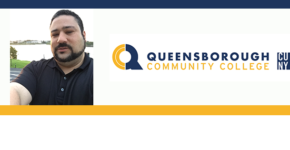 Reducing the cost of textbooks is key for lower-income students.
Reducing the cost of textbooks is key for lower-income students.
William Blick, assistant professor at Queensborough Community College, examines one way to accomplish this goal.
William “Bill” Blick is Assistant Professor at Queensborough Community College of the City University of New York. He is the electronics resources and serials librarian at QCC. His research interests include OERs, Predatory Publishing, Reference, Popular Culture, Film, Literature, and Music. He has published work on OERs and Popular Culture in the Library, and he also has presented at conferences as diverse as crime fiction at the University of Gdansk, and James Joyce at The University of Galway. He is also the liaison for Academic Works-CUNY, the CUNY-Wide Institutional Repository.
Open Educational Resources at Community Colleges
Research has shown that students at community colleges face many challenges in getting an education. One of the foremost difficulties is financial. Recent trends have shown that textbook publishers have made record profits at the expense of students. The new trend in Higher Education is to implement Open Educational Resources, or resources and texts created by professors that are shared and freely disseminated for use by others teaching similar subjects. This works to reduce costs for students.
My research has been how to facilitate programs to implement these resources in our own community. There are challenges in doing so including training, funding, and resistance to change. Funding has recently been offered from internal constituents and from federal and state programs. New York State offered 4 million dollars to fund OER projects at SUNY and CUNY schools. The trend in Open Educational Resources is becoming enormously influential, and as a result, students reap benefits.
The challenges that students face in getting an education can often seem insurmountable. My studies show that students have issues with time management, family issues, and even hunger. The use of OERs can help students realize their dream of affordable education. Using zero cost textbooks can make the difference between an education and the streets.
For many, OERs sounds like a sound-byte, but it has a strikingly relevant place in higher education, and continued research in this area is vital for the progress of Academia as a whole.
